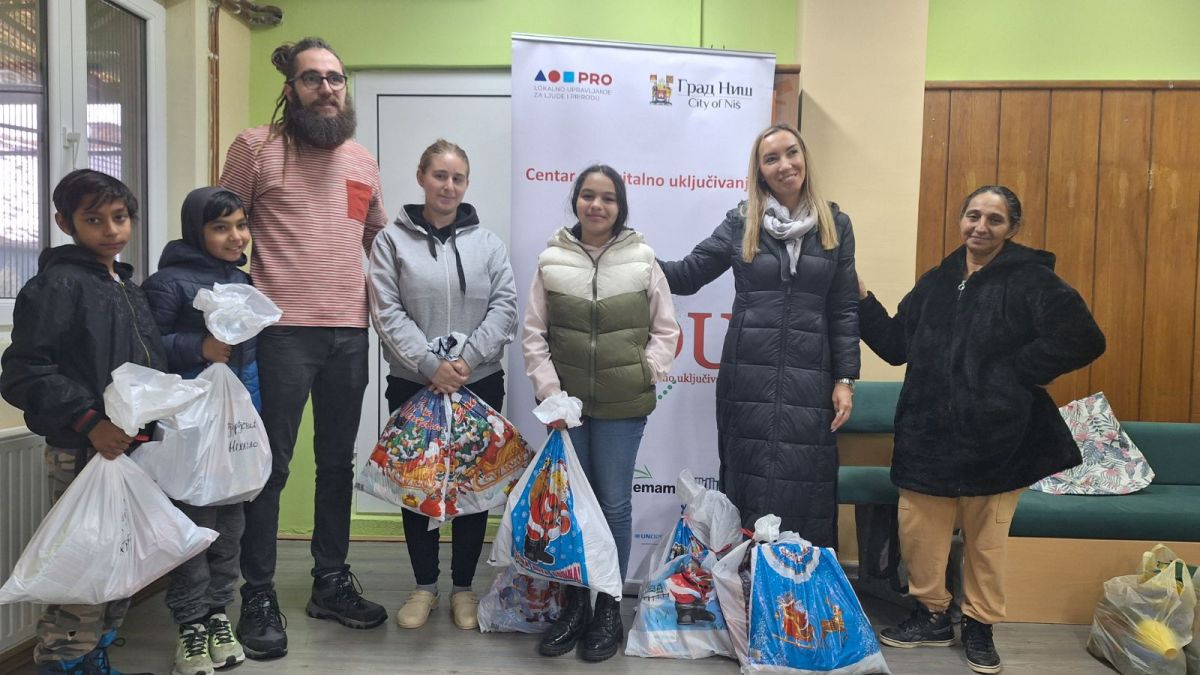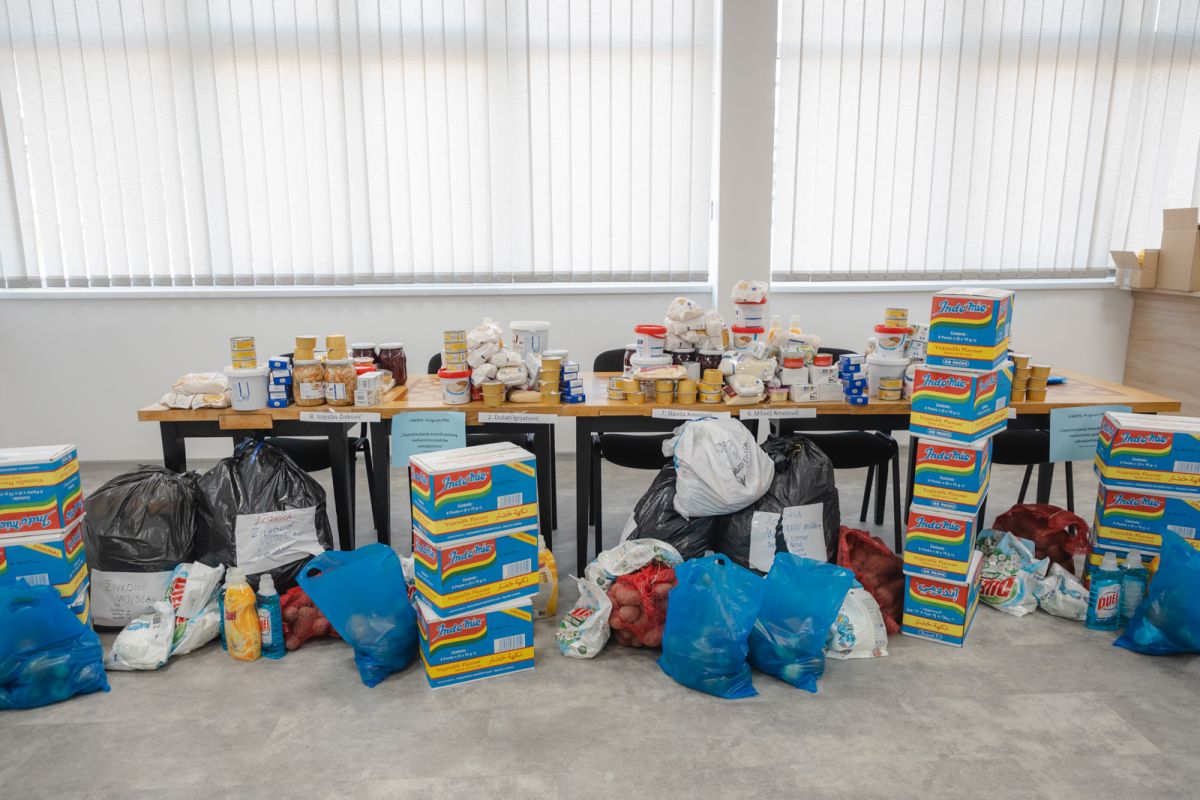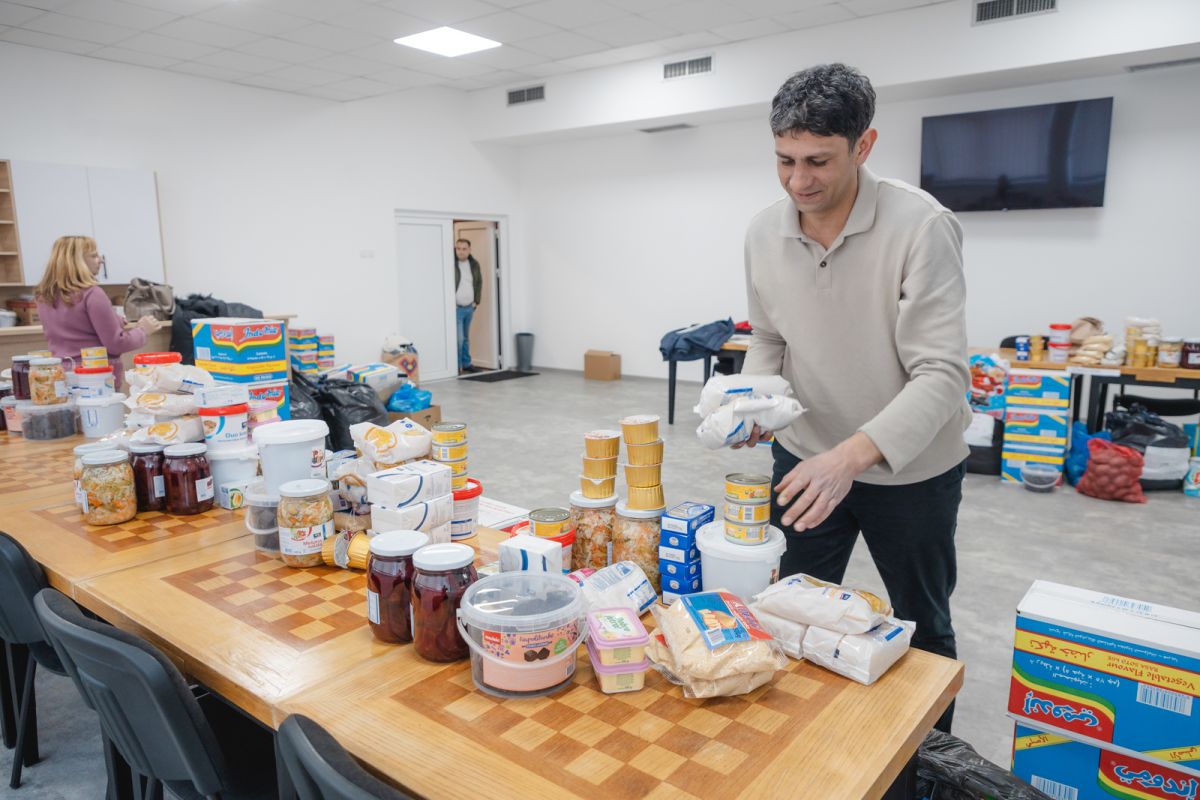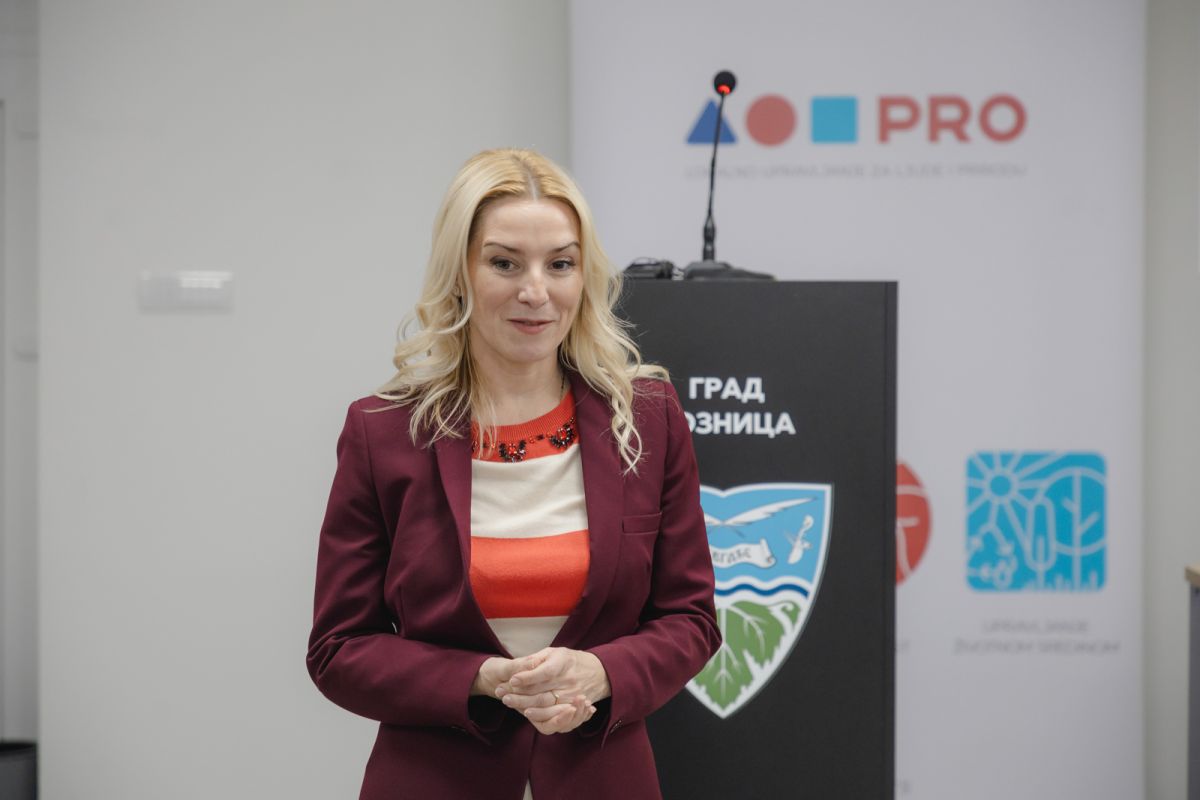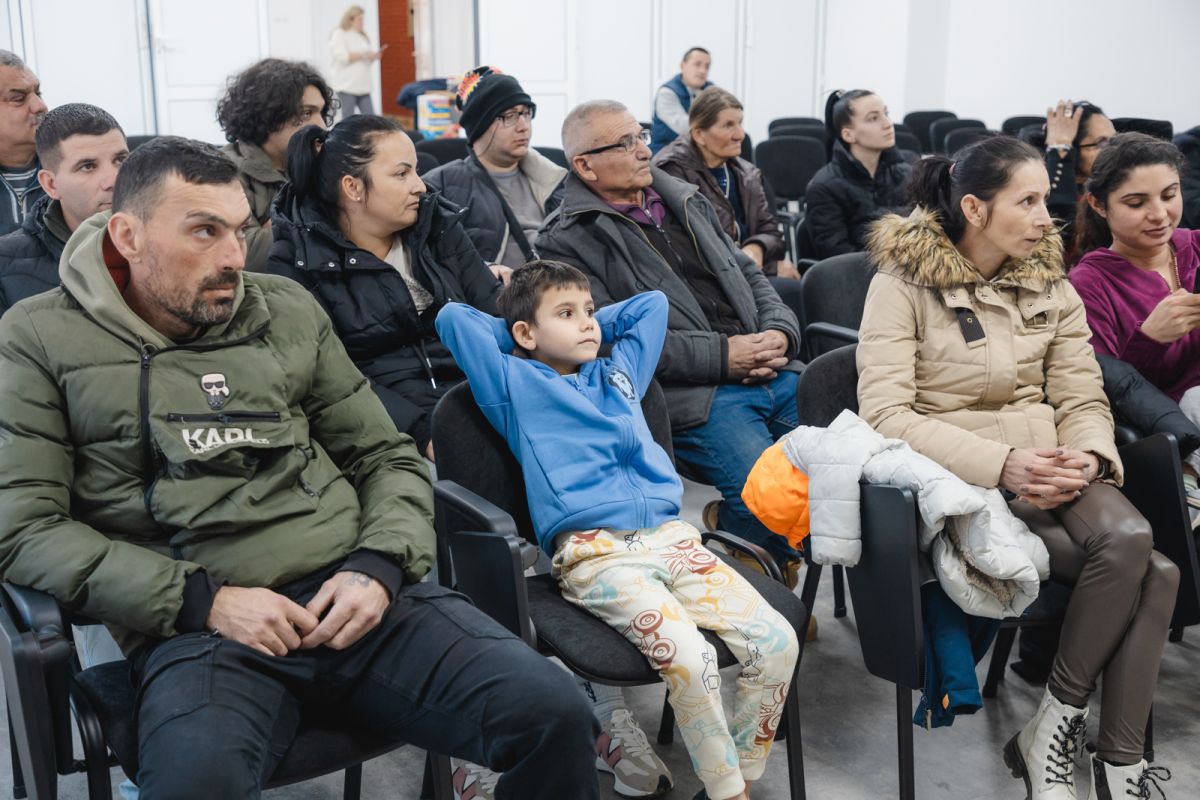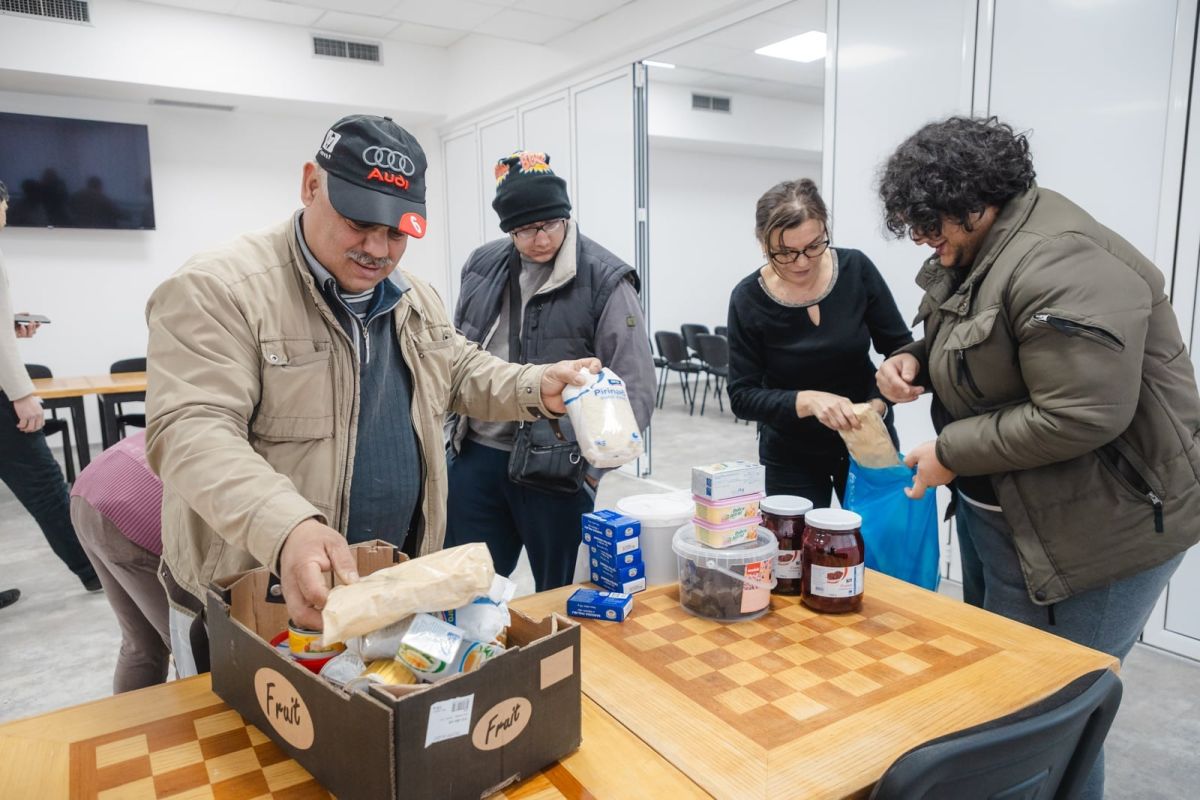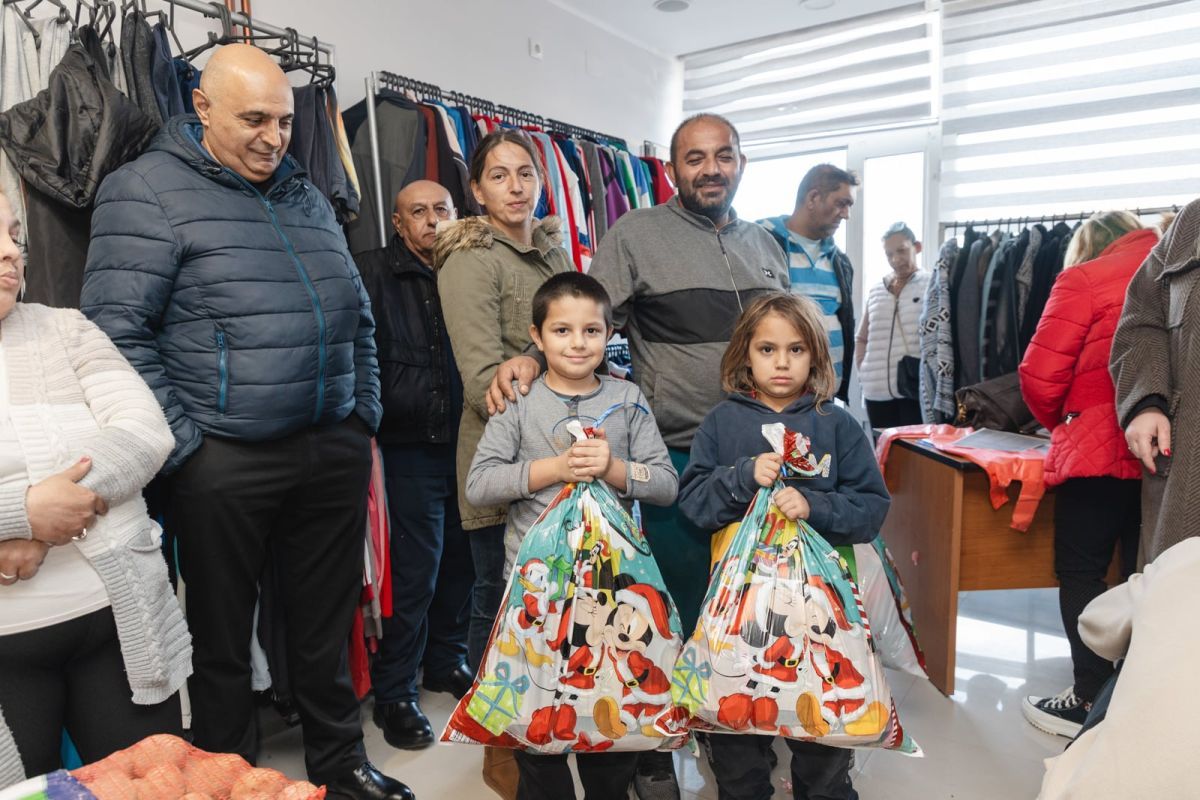Solidarity in Action: Supporting Informal Waste Pickers
The PRO - Local Governance for People and Nature program, jointly implemented by UNOPS, UNICEF, UNFPA, and UNEP in collaboration with the Government of the Republic of Serbia and with financial support from the Swiss Government, has recognized the need to support this community, particularly families directly affected by the ongoing modernization of waste management systems.
While the program works on long-term solutions for their empowerment, it simultaneously provides support during the transition period towards new sources of income. This is achieved through collaboration with family assistants, as well as direct aid in the form of food and supplies donations via the "Get Involved!" initiative implemented by the Center for Digital Inclusion from Niš.
To bridge the period of reduced income while seeking more sustainable employment solutions, the PRO program has supported the "Get Involved!" project, aimed at donating humanitarian aid in the form of food, clothing, furniture, and other necessities. However, this project also enables the strengthening of vulnerable groups' capacities through various educational programs and access to digital tools. One of the key outcomes of this project is the development of the mobile application "Imam-nemam" ("I Have-I Don't Have"), which connects citizens and organizations willing to donate assistance to those who need it most. This digital donation model provides continuous support to waste collectors, as well as to all other vulnerable groups.
Željko Vidanović, a representative of the Center for Digital Inclusion, emphasized the importance of such support mechanisms:
"The idea to help the most vulnerable individuals was born within the Join In! project. The PRO program identified and targeted the most at-risk families, and from that idea and our joint activities, a project emerged aimed at providing direct assistance to these people. The concept behind our application is to help and connect citizens—those who have and wish to give can donate to those in need. Over time, the application has evolved to include companies, such as Glovo, which recently contributed a donation worth 9,000 euros. Every month, we plan to distribute direct aid worth nearly 1,000 euros to support families in various municipalities."
In recent months, over 40 families of informal waste pickers in six municipalities have received humanitarian aid in the form of packages containing essential food, hygiene products, and other necessities. The distribution of aid has taken place in locations such as Šid, Sremska Mitrovica, Ruma, and Valjevo, with recent deliveries also reaching Obrenovac and Loznica.
In Obrenovac, at the premises of the Roma Humanitarian Center, aid was provided to 14 families with more than 70 members, while in Loznica, distribution was organized at the Lagator Sports Center. The youngest family members received special gift packages, and in each municipality, local partners contributed to the implementation of the initiative.
Ljubiša Jovanović is one of the family assistants working directly with individual families within the PRO program, helping them develop personalized plans tailored to their specific needs.
"These families live in unsanitary settlements, which is a major issue. Additionally, these settlements are often built illegally, limiting how and to what extent local institutions can respond to their problems. We monitor their progress, identify key challenges, and strive to find solutions. For some, we help secure stable employment, while for others, we ensure their children continue their education—we’ve even managed to enroll several children in university!"
Program beneficiaries have expressed satisfaction with the support provided by family assistants. Saša Mitrović, an informal waste picker from the municipality of Obrenovac, further explained their situation and why this form of direct aid is so important to them.
"We don’t have enough water for bathing, let alone for drinking. Water and hygiene are our biggest problems, but we also lack roads, making it difficult for children to get to school. This aid today—food and basic necessities—means a lot to us and our children. No matter how small, it is still valuable. The best thing would be for people to come and see where and how we live—I’m sure they would be compelled to take action."
Dušan from Obrenovac, also a waste picker, praised the family assistants who have been working with them for months, as well as this form of direct support.
"The family assistant has helped us a lot. We used to receive social assistance regularly, but now we no longer receive it and don’t know why. That’s why the assistance and support from the family assistant mean so much to us. Also, initiatives like this are crucial—help with food, hygiene, and other essential supplies is necessary because we are struggling to make ends meet."
Local governments have recognized the importance of supporting informal waste pickers, especially at a time when waste collection and management systems are changing. Tanja Glišić Matić, Head of the Department for Social Affairs in Loznica, highlighted the challenges faced by many families due to the loss of income sources.
"The city landfill will soon be closed, leaving a large number of people unemployed. This humanitarian aid is important, but in the long run, we must find ways to economically empower these families. We are very grateful to the donor for helping us address this major issue and for supporting these individuals in becoming economically independent," said Glišić Matić.
While humanitarian aid provides much-needed relief in the short term, the PRO program primarily focuses on long-term solutions. Through various initiatives, the program supports local governments in developing models for the social and economic empowerment of waste pickers, including their integration into formal waste management systems, training for new skills, and access to social and economic programs. In the meantime, efforts like these ensure that help reaches those who need it most.
"We are grateful to the PRO program and the Swiss Government for enabling us to provide this direct support to families of secondary raw material collectors. We hope to involve as many local partners and donors as possible in the future so that we can continue providing this concrete assistance to the most vulnerable," added Željko Vidanović.
Through concrete initiatives such as humanitarian aid, digital innovations, and systemic solutions for economic empowerment, the program will continue to provide informal waste pickers with the support they need to build a more secure and stable future.
